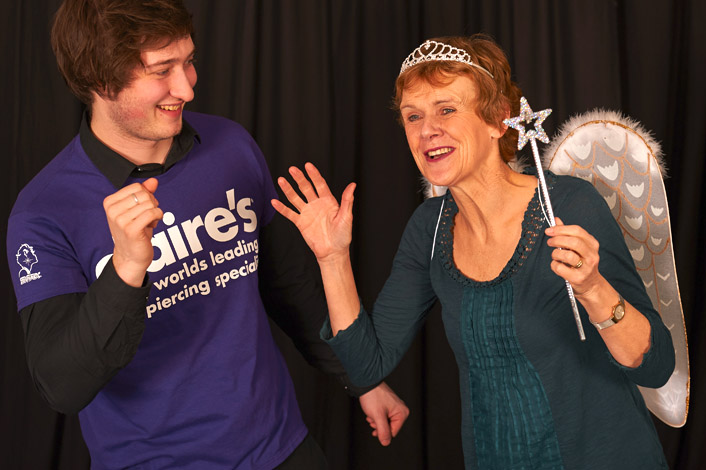If last night was anything to go by, Ginny Davis has struck what, for the fringe at least, is a sadly neglected seam of theatrical ore – the concerned middle classes, always wanting to do the right thing, trying to see the best in everybody and adapting to change with a relaxed stoicism. She’s also to be applauded for getting out there and doing it; writer, producer and actress is no mean feat as anybody who has ever written anything for the stage and then wondered how to get it on will know.
Fashionably Late could have been the transcript of a Radio 4 programme about bereavement. Davis’s ear for her milieu is as acute as Alan Bennett’s is for his; detailed, sensitive and understanding, but with a happy recognition of the inherent comedy of her subject which is quite prone to straying into the absurd without a ‘by-your-leave’. Just how does one manage a family double birthday celebration and the funeral of one’s mum on the same day?
Luckily Ruth’s mum, also played by Ginny Davis with conviction and clarity, has a streak of devilment in her (describing having sex on the beach to her grandson qualifies I think) so it is no stretch to suppose her wish would have been for the party to go ahead with guests asked to come in fancy dress as a character suggested by the first letter of their own name. The audience has been prepared however, with a trip to an Anne Summers sex shop complete with a demonstration of a ‘remote controlled’ dildo and equally unblushing use (for mum that is) of, ‘farts’, ‘fuck-heads’, ‘willys’ and ‘wankers’ (all in the name of Facebook research you understand).
Davis has made a virtue of necessity, with the two hander taking on a whole array of characters from family members to funeral directors and a goth shop assistant – most of the younger characters seem to be struggling graduates or PhD students. The point is well made. James Goldsworthy, the other half of the two-hander, has the pleasure of playing Ruth’s son and husband and both his sisters…and the female shop assistants, all of which he does seamlessly and with style.
Some fun is had in deconstructing the form with both actors taking it in turns to address the audience directly, both in and ‘out’ of character. The effect is to add a kind of immediacy of the, ‘they’re making it up as they go along’ sort, to a play which has wit and charm in equal measure and which, like a Joyce Grenfell monologue or a Posy Simmonds cartoon will have audiences giggling with the delight of recognition. ★★★☆☆ Graham Wyles


